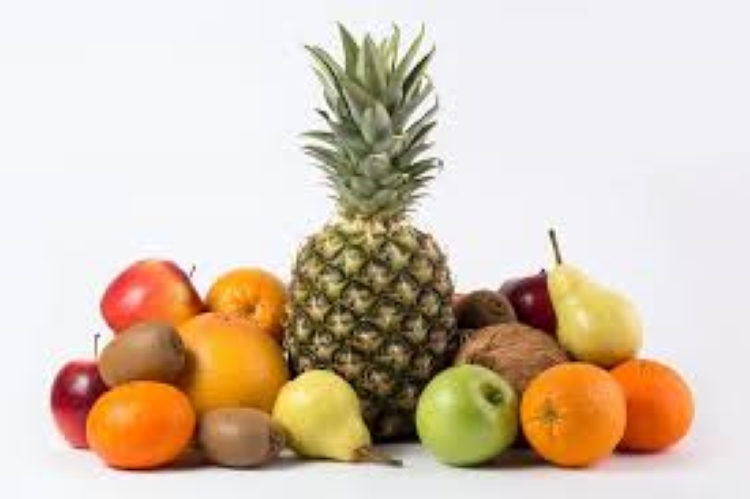Nigeria, the most populous black nation in the world, has a current population of 233,192,207 people as of Friday, August 9, 2024, based on the latest United Nations (UN) data.
Demographic projections show that this population will grow to over 377 million people by 2050. This is because half of the population are under the age of 19 years, and are just coming into the child-bearing age.
The country is facing several challenges, such as relatively weak monetary policy tightening, failure to address imbalances in petrol pricing, infrastructure gaps, weak diversification to non-oil revenues, weak job and entrepreneurial prospects, and consequent mass emigration (‘Japa’) of mostly the youthful population.
In addition, rising insecurity such as Boko Haram terrorists attacks, banditry, kidnapping for ransom, and herder-farmer clashes, have caused many people to abandon their farms.
These have led to chronic food shortages, and soaring costs of food products, other goods and services. Recent demonstrations tagged, #EndBadGovernance protests earlier this month, further portend the grave situation.
For Nigeria to strive to meet some of the key 17 UN sustainable development goals (SDGs) – SDG 1 (No poverty), SDG 2 (Zero hunger), and SDG 3 (Good health and well-being), there must be a deliberate interest to strengthen and increase local food production, leveraging on the country’s massive market size, good climate, rich flora and fauna, and hardworking citizens.
As such, much attention is being paid towards looking into home gardens, as a means to improve household food security and nutrition.
A home garden is an outdoor space, which may be around the household or within walking distance from the family home, designated for the cultivation of plants and other forms of nature.
It may be plants alone – vegetables, fruits, plantation crops, spices, herbs, ornamental plants, medicinal plants – or a mixed cropping system that encompasses livestock – cattle, sheep, goats, pigs, horses, chickens, turkeys, ducks – as well.

Plant materials are used as fodder for animals and animal manure is incorporated into the compost to fertilize plants, hence reducing the need for chemical agents.
Having a home garden has several economic, socio-cultural, health and environmental benefits.
Firstly, home garden requires a small area of land, which can be utilised for raised bed, container, square foot, hanging, vertical, greenhouse, traditional in-ground, or modern soil-less gardening.
Since the garden is located close, it is usually more secure, convenient, and easily accessible. Though home garden may not provide a main source of income, it could give a supplementary plan for sustainability.
Proceeds from the sale of the fruits, vegetables and livestock products may be used to purchase other food items needed in the home.
Likewise, incomes made from consuming home-grown food products can give more disposable income that can go into savings, clothes, and education.
Home gardens can also be structured to be more commercially-efficient venture by growing high-value crops and animal husbandry.
Secondly, home gardening is not capital or labour-intensive, as the first source of labour is usually family members such as the grandparent, father, mother, uncle, aunt, children, and requires simple technology.
Any person, regardless of age, gender, or status, can easily venture into it at some level. Thirdly, home gardens provide easy access to fresh plant and animal food sources, adding substantially to the family energy and nutritive requirements. According to the World Health Organisation (WHO), more than 35% of the fatalities worldwide are caused by factors attributed to nutritional and metabolic diseases. In particular, low-and middle-income countries (LMICs) face a heavy burden of malnutrition.
It should be noted that good nutrition is related to improved infant, child and maternal health, stronger immune systems, safer pregnancy and childbirth, lower risk of non-communicable diseases such as diabetes and cardiovascular disease, and longevity.
This reality reminds me of the wedding ceremony of a colleague of mine that we attended recently at Igbogila, Yewa, Ogun State. What was intriguing, as we savoured the freshly-made meal placed before us, was the freshness and sweet aroma of the fish and vegetables, and how the meal went ‘tirintirin’ into our guts. On enquiry, we were told every plant and animal-based meal served, were cultivated around the home.
A tour round the garden after the reception, was the ‘icing on the cake’. Medicinal plants have been important sources of medicines for humans and livestock for several decades.
The WHO reports that nearly 80% of people, especially in LMICs such as Nigeria, use medicinal plants to treat various illnesses, or to improve their health conditions.
Atropine, a standard drug used to treat certain types of nerve agent and pesticide poisonings, was sourced from Atropa belladona (Deadly nightshade plant) and digoxin, used to manage and treat heart failure and certain arrhythmias, is from Digitalis purpurea (Common foxglove plant).
Several herbs, spices, fruits and vegetables have been scientifically-proven to possess anti-oxidant and other medicinal properties.
A friend of mine, as advised by his physician, takes a blend of Ocimum gratissimum (Scent leaf in English, Efinrin in Yoruba, Nchanwu in Igbo and Daidoya in Hausa), Vernonia amygdalina (Bitter leaf in English, Ewuro in Yoruba, Onugbu in Igbo, Chusar-doki in Hausa), and Allium sativum (Garlic in English, Ayo in Yoruba, Ayuu in Igbo, and Tafarnuwa in Hausa) in the right proportion, as early morning tea and immune booster.
The First Lady of Nigeria, Senator Oluremi Tinubu, has reportedly planted some vegetables including spinach (Amaranthus species, Efo tete in Yoruba, Akwukwo nri in Igbo and Ganye alayyafo in Hausa), lemon grass (Cymbopogon citratus, Koko oba in Yoruba, Achara ehi in Igbo, Lakkire in Hausa), bitter leaf, scent leaf, among others, to encourage more women to go into home gardening.
The gross benefits and opportunities of home gardening for better health cannot be over-emphasised.
Fourthly, the home garden serves as some form of fun, exercise and leisure activities for the family.
In addition, making children aware of their environment, through home gardening, can assist them in developing proficiency related to plants and garden practices, and animal handling and care, ultimately becoming better home and environment managers.
They can develop love for nature, love for fellow human beings, and love for the environment.
By their involvement in the food production process, including land preparation, planting, weeding, harvesting, and marketing, they are able know some basic mathematical calculations and life skills, taking them away from social vices.
I must say that much of the information we crammed in our mathematics, biology and agriculture classes in those days might not have been necessary, if we had hands-on experiences.
Home gardening also presents to children, broader ideas to answer that age-long question – What will you like to be in future?
Lastly, environmental benefits of home gardens serve to initiate and utilise eco-friendly approaches for food production while conserving the rich diversity and composition of species, and the vast distribution of flora and fauna – all maintaining a symbiotic relationship.
In addition, pollination, the abundance of plant and animal litter and continuous recycling of organic soil matter contributes to a highly efficient nutrient cycling system, reduction of soil erosion and land conservation.
With the declaration of a state of emergency on food security, the President Bola Tinubu-led Federal Government as well as the state and local governments need to empower households across Nigeria to engage in home gardening to create avenues for entrepreneurship, economic growth, women and youth development, as well as rural development.
Additionally, timely and periodic information need to be given to users, strengthening of extension and advisory services, giving more access to agricultural inputs such as seeds, planting material, tools to backyard farmers, and not to only those who engage in large- or small-scale farming, and reducing the high interest rates of agricultural loans.
A Yoruba proverb states “Ai tete ya egberin iwofa, loun muni roko ataunde”. Literally means, if we fail to handle agriculture as a key success to our economy, we will keep depending on importation of finished products that other countries used our raw materials to make.
So, let us till our gardens, “… and so with peace and in plenty, Nigeria may be blessed”.
Dr. Adenubi, an Associate Professor and Veterinarian, is a columnist with FarmingFarmersFarms, bukiadenubi@gmail.com, +2348025409691.


1 Comment
Home gardening is very important now with the current prices of vegetables in the market. I have a little home garden but some landlords don’t allow it.